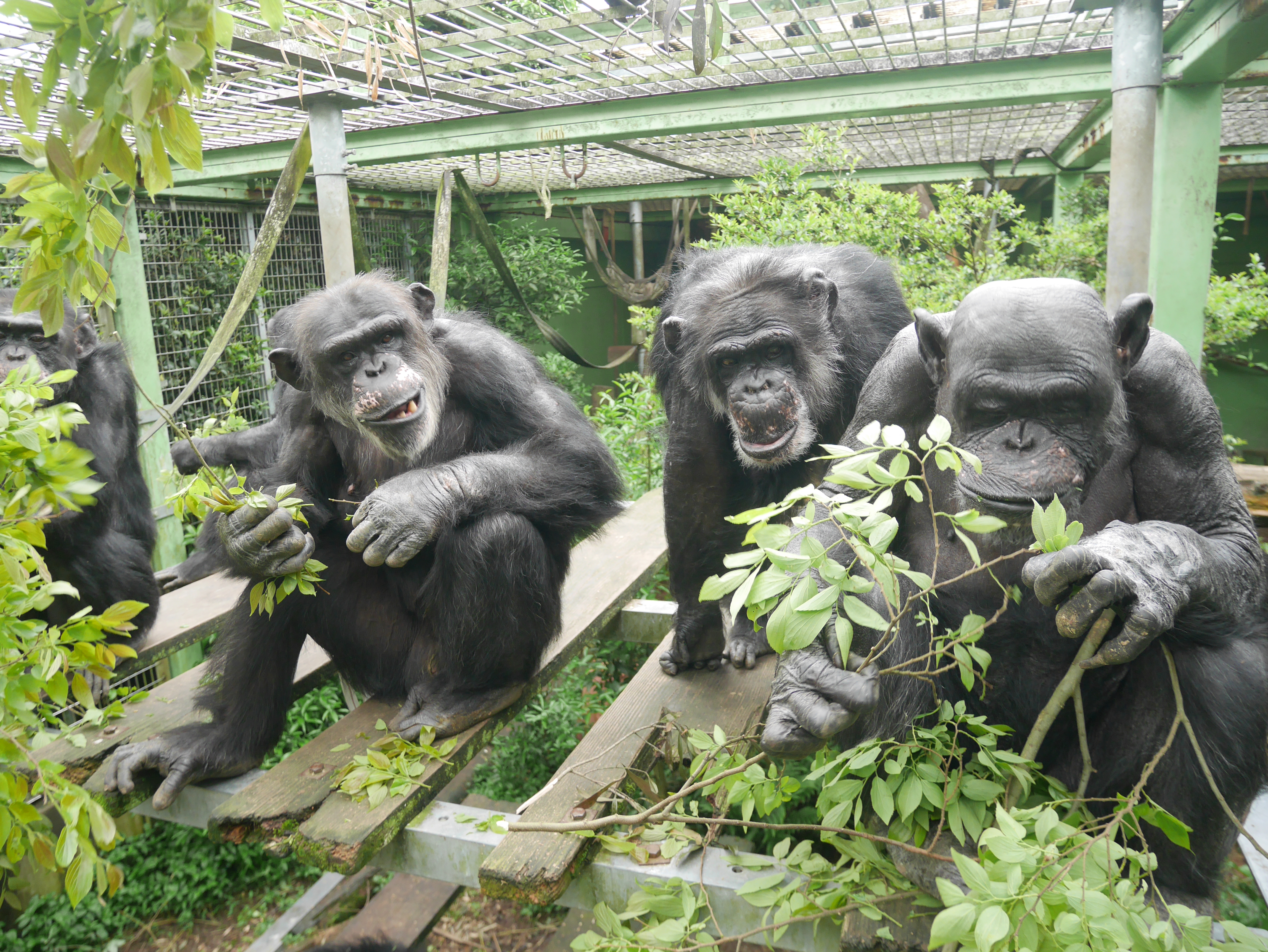WWW.SMITHSONIANMAG.COM
For Chimpanzees, Peeing May Be ContagiousJust Like Yawning Is for Humans, Study Finds
For Chimpanzees, Peeing May Be ContagiousJust Like Yawning Is for Humans, Study FindsScientists suggest captive chimpanzees engage in socially contagious urinationthat is, when one primate starts peeing, others quickly follow suit A new study on "contagious urination" only looked at captive chimpanzees, but researchers suspect the phenomenon may also exist in the wild. Kumamoto SanctuaryIf you see or hear someone yawn, you might suddenly feel the urge to do the same, thanks to a well-studied phenomenon known as contagious yawning. Now, new research suggests urination may function in a similar way: Captive chimpanzees that saw their peers peeing were more likely to take a tinkle themselves.Scientists describe their evidence for this socially contagious urination in a new paper published Monday in the journal Current Biology.Study co-author Ena Onishi, a primatologist at Kyoto University, first became interested in chimp urination in 2019. While researching captive chimpanzees at the Kumamoto Sanctuary in Kyoto, Japan, she noticed that the animals all tended to pee at the same time.This observation reminded her of certain human behaviorsincluding contagious yawning and the tendency for people to go to the bathroom in groups.In Japan, my home country, there is a specific term called Tsureshon, which refers to the act of urinating in the company of others, Onishi tells Science News Gennaro Tomma.In addition to Tsureshon, the researchers also point to an Italian proverb that says whoever doesnt pee in company is either a thief or a spy.So, Onishi decided to conduct an experiment to learn more. She and her colleagues recorded the sanctuarys 20 chimpanzees for more than 600 hours, capturing 1,328 urination events in their footage.After analyzing the videos, the team confirmed their suspicions: When one chimp started peeing, others quickly followed suit.Their data also revealed more nuanced findings: For instance, chimpanzees with a lower social rank were more likely to urinate when they saw their peers peeing. Physical proximity to the initial urinator also increased the likelihood that other chimps would follow suit.Social closenessor how tightly bonded a pair of chimps seem to be, based on how much time they spend grooming or hanging out with each otherdid not appear to influence the contagious urination. Thats a departure from contagious yawning in humans, which does seem to be affected by social closeness.Since humans are known to visit the restroom together, the findings suggest contagious urination may have a deep evolutionary origin, study co-author Shinya Yamamoto, also a primatologist at Kyoto University, tells Live Sciences Olivia Ferrari. The behavior may even trace back to a shared ancestor. (Chimpanzees, along with bonobos, are humans closest living relatives.)In humans, we know that our decision to urinate is influenced by social contexts that lead us to urinate simultaneously with others, and that this simultaneous urination could also promote further social bonding, Yamamoto adds. Our study with chimpanzees clearly shows that they share some similarities in this phenomenon.Though the study only included captive chimpanzees, researchers suspect contagious urination probably exists in the wild, too. Future studies might investigate the behavior among wild chimps, as well as among other social species.If you walk with great apes in the wild, you often see that group members really coordinate what theyre doing, says Martin Surbeck, an evolutionary biologist at Harvard University who was not involved with the paper, to the New York Times Annie Roth.Why do chimps seem to pee at the same time? The study doesnt answer that question definitively, but the researchers have developed a few theories. Contagious urination might help reinforce social bonds and boost cohesiveness, or it might be a defensive move to prevent predators from tracking the groups movements.Humans and non-human animals share many social phenomena linked to group livingwere all influenced by the presence of others, even in everyday activities, Onishi tells Salons Matthew Rozsa. For instance, behaviors like yawning, walking, rhythmic tapping and even changes in pupil size are contagious in both humans and chimpanzees. Our study fits into this framework by showing that urination, a seemingly simple physiological act, can also spread socially within a group.Get the latest stories in your inbox every weekday.Filed Under: Animals, Evolution, Human Evolution, Human Origins, Japan, Mammals, New Research, Primates, Social Sciences, wildlife
